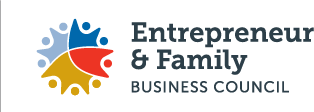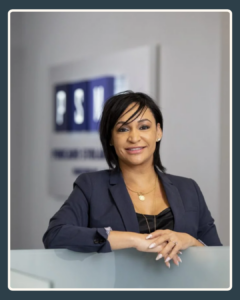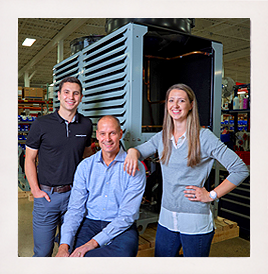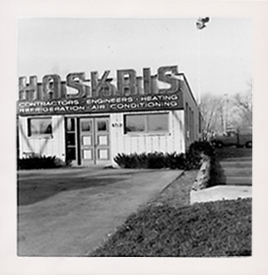
President – Joel Spencer
Joel Spencer serves as EFBC President and COO at Perma-Seal. He has worked at the company for over 20 years, leading improvements in operations, technology, and culture. Known for his people-first approach and commitment to innovation, Joel brings that same mindset to EFBC, helping foster a strong, growth-driven member community.
As President, Joel presides over board meetings, creates meeting agendas, appoints committees and committee chairs, serves as the primary contact for the board, and holds fellow board members accountable for participation and engagement.
 Vice President – BJ Slater
Vice President – BJ Slater
B.J. is a third-generation co-owner of Plant Marvel, his family’s fertilizer manufacturing company based in Chicago Heights. Prior to joining the business in 2013, he worked as a commercial pilot and safety director for a regional cargo airline. He brings a passion for learning and development to both his company and his work with EFBC. He lives in Crown Point, Indiana with his wife, Katie, and daughter, Gracyn.
As Vice President, B.J. prepares to assume the role of President next year and steps in to fulfill board chair duties when the President is absent. He assists the board chair in executing responsibilities and serves on committees to gain deeper insight into board operations. operations.
 Past President – Darrin Shillair
Past President – Darrin Shillair
Darrin Shillair is President of Specialty Sales, a business with a 50+ year history that he acquired in 2018. He holds an MBA from the University of Chicago Booth School of Business and a BSE in Industrial and Operations Engineering from the University of Michigan–Ann Arbor. Darrin also serves on the board of the LYTE Collective, a nonprofit supporting Chicago youth experiencing homelessness.
He served as EFBC President for the 2024–2025 fiscal year and now continues his service on the board as the outgoing President.
 Treasurer – Michelle Puch
Treasurer – Michelle Puch
Michelle Puch serves as Treasurer on the EFBC Board and has been an active member of EFBC for over 10 years. She works in her family’s business, Primrose Candy Company, which was founded in 1928 and continues to operate in Chicago. Michelle brings both financial insight and a deep understanding of multi-generational family business to her role on the board.
As Treasurer, Michelle oversees bank accounts and financial statements, serves as finance committee chair, assists in preparing the annual budget, and reviews the annual audit to present it to the board.

Governance Director – Jim Flanagan
Jim Flanagan has been a member of EFBC since 1998. His family-founded company, Nuance Solutions, was established in 1972 and made its mark in the chemical manufacturing industry.
As Governance Director, Jim reviews Bylaws annually, ensures legal forms are filed on time, assures that documents are filed and accessible, oversees the Board calendar, and is responsible for board succession.
 Education Director – Bjorn Kulseng-Hansen
Education Director – Bjorn Kulseng-Hansen
Bjorn is Sales Manager at Industrial Kinetics and has worked at the company for more than 25 years in both project management and sales. He has been a dedicated EFBC member since 2012 and now serves as Education Director.
As Education Director, Bjorn oversees programming, emerging leaders, curriculum, and emeritus groups, addresses programming needs, creates curriculum around family business and entrepreneurship.
 Membership Director – Ryan Seitz
Membership Director – Ryan Seitz
Ryan is President of Kolbi Pipe Marker Co., a family business based in Schaumburg. With a background in construction management and architecture, he transitioned from the high-rise residential construction world into the family business in 2020. Since joining EFBC in 2022, Ryan has been an active member of the Flex Forum and is now helping expand EFBC’s reach through his role as Membership Chair.
 Forum Director – Julie Suh
Forum Director – Julie Suh
Julie Suh is President of BISCO, a second-generation family business. Established in 1981, BISCO specializes in adhesive and resin composite technology, serving dental professionals in the U.S. and in more than 90 countries worldwide.
Julie has been an EFBC member for over 10 years and now serves as Forum Director, overseeing Forum health, chairs the Protocol Committee, and addresses issues around Forum participation, process, and management.
 Strategic Partners Director – Rachel Bossard
Strategic Partners Director – Rachel Bossard
Rachel is our partner at Burke, Warren, MacKay & Serritella, where she chairs the firm’s Labor and Employment practice group. She has extensive experience representing both for-profit and nonprofit organizations, including schools, universities, and corporations. Rachel also regularly advises executives and leadership teams on employment issues, and she brings a pragmatic, risk-aware approach to her work with EFBC’s Strategic Partners.
As Strategic Partner Director, she chairs the Strategic Partner Committee and is responsible for recruitment, engagement, and retention of the Strategic Partners.
 DePaul University – Bruce Leech
DePaul University – Bruce Leech
Bruce Leech leads the Coleman Entrepreneurship Center at DePaul which helps students and alumni develop their entrepreneurial skills, launch and grow ventures, and network with Chicago’s vibrant entrepreneur community. As a faculty member, he teaches courses in strategic entrepreneurship and business plan development. An experienced entrepreneur, Leech is the founder of CrossCom National, an information technology data/voice company, and co-founder of Evolve USA, a membership organization for business owners. He has been inducted into the Chicago Entrepreneurship Hall of Fame.







